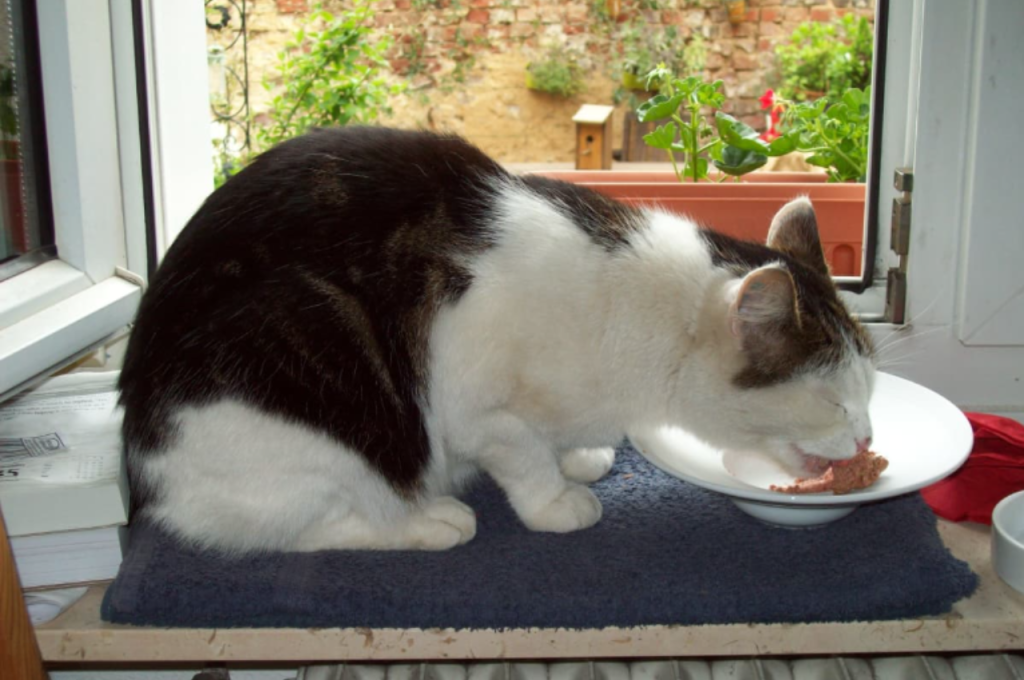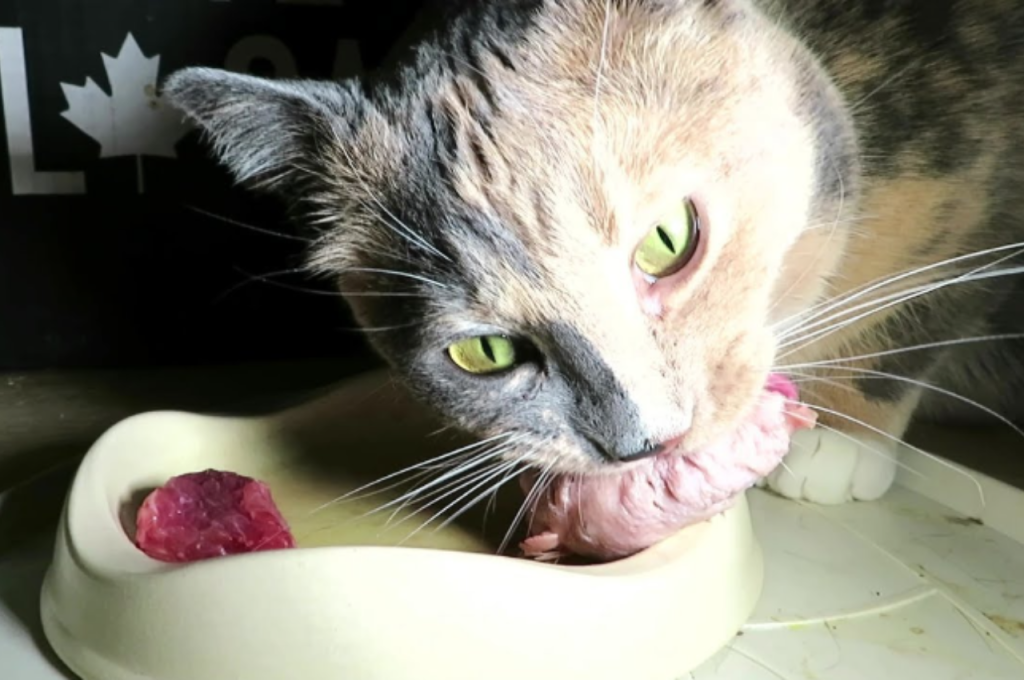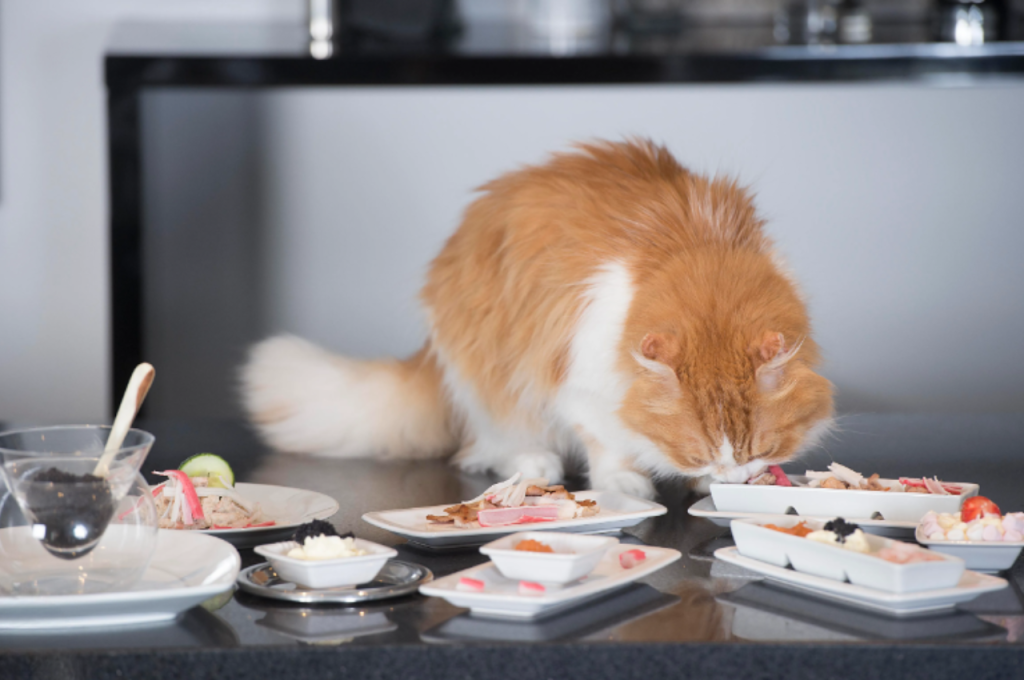Tuna is not better than chicken for cats. Chicken is a more nutritionally balanced option for cats due to its higher protein content and lower mercury levels.
Many cat owners wonder whether tuna or chicken is better for their furry friends. While tuna may seem like a tasty treat for cats, it should not be a regular part of their diet. Tuna have a higher level of mercury, which can be detrimental to their health in the long run.
On the other hand, chicken is a healthier choice as it is a lean protein source and contains essential nutrients that cats need. It is also easier to digest for them. So, while tuna can be given occasionally, chicken is generally a better option for maintaining the overall health and well-being of cats.
Understanding Cats’ Dietary Needs
Cats are carnivores by nature, which means their bodies are designed to thrive on a diet rich in animal protein. As pet owners, we need to understand their dietary needs to ensure their overall health and well-being. In this article, we’ll discuss the carnivorous nature of cats and the essential nutrients they require for a balanced diet.

Carnivorous Nature of Cats
Cats are natural predators and their bodies have evolved to primarily consume meat. Unlike humans or even some other animals, cats lack the necessary enzymes to efficiently process and digest plant-based foods. Their digestive systems are designed to break down protein and fat, allowing them to properly utilize the nutrients from animal sources.
In the wild, cats obtain their protein from hunting and consuming prey such as birds, mice, and other small animals. This high protein intake is crucial for maintaining their muscles, joints, and organs. While domesticated cats no longer have to hunt for their food, their nutritional needs remain the same.
Essential Nutrients for Cats
When it comes to meeting their dietary requirements, cats need a variety of essential nutrients. These include:
- Protein: Protein is the foundation of a cat’s diet and helps support healthy muscle growth and maintenance. It is essential for the proper functioning of various body systems.
- Taurine: Taurine is an amino acid that cats cannot produce on their own. It is critical for maintaining good vision, heart function, and reproductive health.
- Arachidonic Acid: Cats require arachidonic acid, an omega-6 fatty acid, for healthy skin, coat, and overall immune function.
- Vitamins and Minerals: Cats need specific vitamins and minerals, such as vitamin A, vitamin D, calcium, phosphorus, and magnesium, for various physiological functions.
While both tuna and chicken can be sources of protein for cats, it’s important to note that a balanced diet is key. Too much of a single protein source can lead to nutrient imbalances and deficiencies. Additionally, some cats may have specific dietary sensitivities or allergies that need to be taken into consideration when choosing their food.
Ultimately, consulting with a veterinarian is the best way to ensure that your cat’s nutritional needs are met. They can guide the appropriate amount and sources of protein, as well as other essential nutrients, to keep your feline friend healthy and happy.
Pros and Cons of Tuna for Cats
When it comes to feeding your feline friend, it’s essential to weigh the pros and cons of tuna. While tuna has long been a popular choice for cats, it’s important to consider both the benefits and drawbacks to ensure your pet’s health and well-being.
High Protein Content
Tuna is known for its high protein content, making it an enticing option for pet owners looking to provide their cats with a protein-rich diet. Protein is essential for maintaining your cat’s overall health, supporting muscle growth, and promoting a glossy coat.
Potential Mercury Contamination
On the flip side, tuna carries the risk of potential mercury contamination. Mercury is a toxic substance that can accumulate in fish, posing a threat to your cat’s health if consumed in large quantities. It’s crucial to monitor your cat’s tuna intake to minimize the risk of mercury poisoning.
Pros and Cons of Chicken for Cats
When it comes to choosing the best protein source for your cat, chicken is a popular choice. However, like any food, there are both pros and cons to consider. Let’s take a closer look at the benefits and drawbacks of incorporating chicken into your cat’s diet.

Lean Protein Source
Chicken is a lean protein source that can help cats maintain muscle mass and overall health. It offers essential amino acids and is easily digestible, making it an excellent option for cats with sensitive stomachs or dietary sensitivities.
Potential Allergies
Some cats may develop allergies to chicken, leading to skin and digestive issues. It’s essential to monitor your cat for any signs of allergic reactions if you decide to feed them chicken. Additionally, chicken may not be suitable for cats with a known sensitivity to poultry products.
Nutritional Comparison
When comparing tuna and chicken for cats, tuna is higher in protein and omega-3 fatty acids, providing essential nutrients for feline health. Additionally, it’s important to consider the nutritional balance to meet their dietary needs. Overall, both tuna and chicken can be included in a cat’s diet, but in moderation and with proper consideration of their nutritional requirements.
Protein Levels
Protein is an essential component of a cat’s diet as it helps support their overall growth, maintenance, and repair. Both tuna and chicken are rich sources of protein, but the protein levels may vary between the two. The protein content in tuna is approximately XX% per serving, while chicken offers a slightly higher XX% protein per serving.
It’s important to note that the specific protein content may vary depending on the type of tuna or chicken used, such as canned tuna versus fresh tuna or cooked chicken versus raw chicken. Therefore, always refer to the packaging or consult with your veterinarian to ensure you’re providing the best protein source for your cat.
Vitamins and Minerals
In addition to protein, cats need a variety of vitamins and minerals to support their overall health. Comparing the vitamin and mineral content of tuna and chicken can help determine which option provides a more balanced nutrient profile for your cat.
When it comes to vitamins, both tuna and chicken offer important ones such as vitamin B6 and vitamin B12, which contribute to overall energy metabolism and the health of the nervous system. Tuna also provides a good amount of vitamin D, which supports bone health, while chicken is a rich source of vitamin A, benefiting eye health.
In terms of minerals, both proteins play a role. Tuna offers minerals such as selenium, which acts as an antioxidant, and phosphorus, crucial for bone health. Chicken, on the other hand, contains minerals like iron, which aids in oxygen transport, and zinc, important for immune function.
Here’s a quick summary of the nutritional comparison between tuna and chicken for cats:
| Nutritional Comparison | Tuna | Chicken |
| Protein Content | Approximately XX% | Slightly higher at XX% |
| Vitamins | Good source of vitamin D, vitamin B6, and vitamin B12 | Rich in vitamin A, vitamin B6, and vitamin B12 |
| Minerals | Provides selenium and phosphorus | Contains iron and zinc |
Remember, when it comes to choosing between tuna and chicken for your cat, considering their overall nutritional needs is crucial. Consulting with your veterinarian can help tailor the diet to your cat’s specific requirements and ensure they receive the optimal balance of proteins, vitamins, and minerals for a healthy and happy life.
Impact on Feline Health
Delve into the debate between tuna and chicken for your cat’s dietary needs. Gain insights into their health implications to make a well-informed decision, ensuring optimal feline well-being.
Digestive Health
Tuna and chicken, impact digestive health differently.
- Tuna can cause digestive issues in some cats due to high magnesium content.
- Chicken is gentler on the stomach and easier to digest for most felines.
Weight Management
Choosing between tuna and chicken can impact a cat’s weight.
- Tuna can be fattier, leading to weight gain if not monitored.
- Chicken, a leaner option, supports healthy weight management in cats.
Choosing the Right Option
When choosing between tuna and chicken for your cat, it is essential to consider the right option based on your cat’s needs. Each cat is unique, so it is crucial to take into account their individual preferences and dietary requirements.

Considering Individual Cat’s Needs
Each cat has different tastes and nutritional needs, some may prefer tuna over chicken, while others might have sensitivities to certain proteins. Always make sure to consult with your vet before making any changes to your cat’s diet.
Feeding Guidelines
- For canned tuna, make sure it is high-quality, packed in water, and free from additives like salt or seasonings.
- Opt for chicken options that are specifically formulated for cats, ensuring they meet their nutritional requirements.
- Avoid feeding tuna that is meant for human consumption as it can contain high levels of mercury, which can be harmful to your cat.
Ultimately, the choice between tuna and chicken for your cat depends on their individual needs and preferences. Always prioritize their health and well-being when selecting their food options.
Conclusion
Both tuna and chicken can be suitable options for cats, but it is important to consider their nutritional needs and potential health risks. While tuna may be a tempting treat, it should be given in moderation due to its potential mercury content.
On the other hand, chicken is a lean protein source and is generally safe for feline consumption. It is crucial to consult with a veterinarian to determine the best diet for your cat’s specific requirements. Ultimately, ensuring a balanced and appropriate diet is essential for your cat’s overall well-being.
